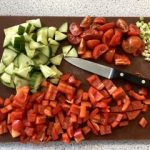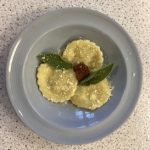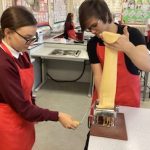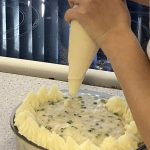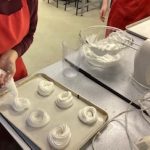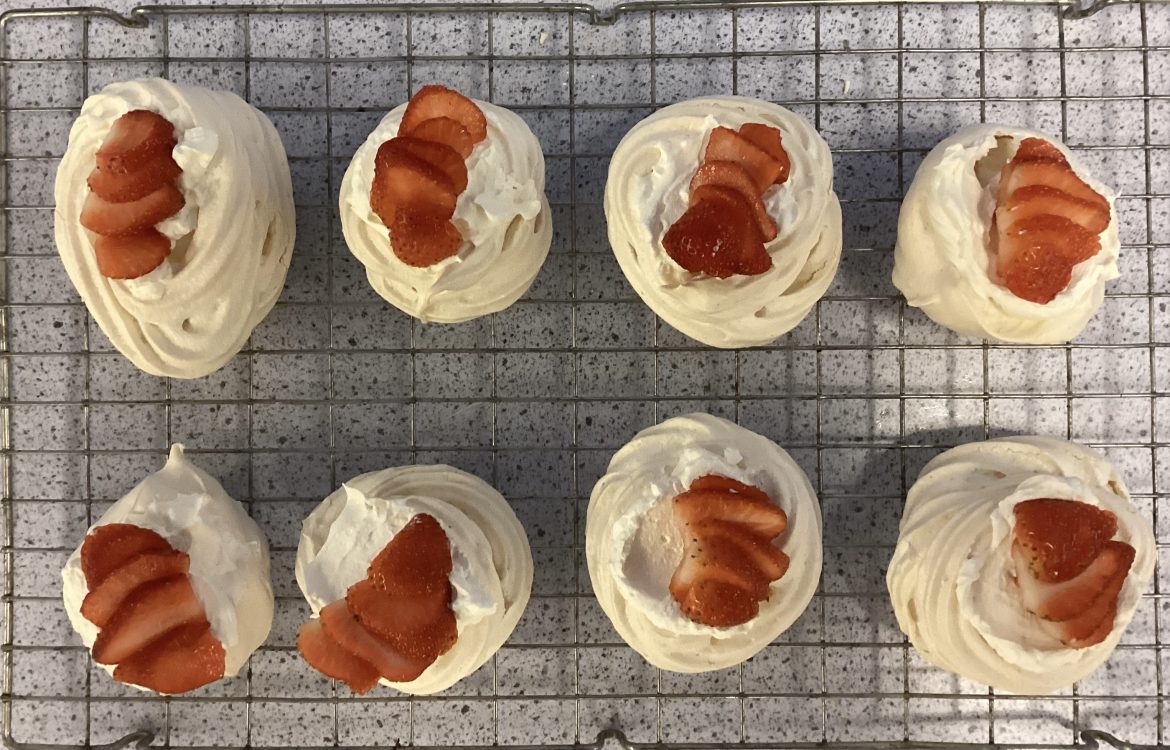
Food and Cookery
WHAT DO STUDENTS LEARN IN FOOD PREPARATION AND NUTRITION IN KEY STAGE 4?
The Level 1/2 Technical Award in Food and Cookery is designed for learners who want an introduction to food and cookery that includes a vocational and project-based element. The qualification will appeal to learners who wish to pursue a career in the food industry or progress onto further study.
The Level 1/2 Technical Award in Food is aimed at 14- to 16-year-olds studying key stage 4 (KS4) curriculum who are interested in the food and hospitality sector. This qualification is designed to match the rigour and challenge of GCSE study. The qualification is graded at level 1 pass/merit/distinction and level 2 pass/merit/distinction/distinction* (equivalent to GCSE grades 8.5 to 1).
It enables learners to develop their personal interest and skills in cookery that will help them to prepare food that is healthy and nutritious. These vocational skills will help the learner to make appropriate food choices and provide a balanced diet for themselves and others. These skills can readily be transferred to further study or employment within the food sector. This level 1/2 qualification is appropriate for learners who are looking to develop a core of knowledge and understanding of food and cookery principles and apply their knowledge through a series of practical tasks and by using a wide range of cooking skills.
HOW WILL STUDENTS LEARN IN THIS COURSE?
- Content area 1: Health and safety relating to food, nutrition and the cooking environment
- Content area 2: Food legislation and food provenance
- Content area 3: Food groups, key nutrients and a balanced diet
- Content area 4: Factors affecting food choice
- Content area 5: Food preparation, cooking skills and techniques
- Content area 6: Recipe amendment, development and evaluation
- Content area 7: Menu and action planning for completed dishes
This will be delivered through a combination of practical and theory lessons and students will required to provide ingredients when making
HOW ARE STUDENTS ASSESSED IN THIS COURSE?
| Assessment Breakdown | · 1 hour 30 minutes examined assessment
· 16 hours 30 minutes non-exam assessment |
|
| Non-exam assessment (NEA) | Weighting (60%) | Externally-set, internally marked and externally moderated:
· Synoptic project |
| Examined Assessment (EA) | Weighting (40%) | Externally-set, externally marked:
· Written exam |
| Total | 100% | Overall qualification grades:
L1P,L1M,L1D,L2P,L2M,L2D,L2D* |
The qualification has 2 assessments externally set by NCFE in Y11:
One non-exam assessment 60% of the technical award 96 marks
The completion time for the NEA is 16 hours 30 minutes – a combination of practical and written work internally marked externally moderated
A different NEA brief will be released every September by the exam board
One written examined assessment. 40% of the technical award
Written examination:
- 80 marks
- 1 hour 30 minutes
- a mixture of multiple-choice, short-answer and extended response questions
WHAT IS THE LEARNING SEQUENCE?
| NCFE Food and Cookery Overview of Delivery | |||||||||||
| Y10 | |||||||||||
| Sept | Oct | Nov | Dec | Jan | Feb | March | April | May | June | July | |
| Unit 1
Health and safety related to food nutrition and the cooking environment.
15 hours |
Unit 3
Food groups Key nutrients and a balanced diet
40 hours |
Unit 5
Food Preparation and Cooking skills and Techniques,
20 hours |
Unit 4
Factors affecting Food choice.
10 hours |
Unit 7
Menu and action planning for completed dishes.
10 hours |
Practice task
3b Plan prepare and cook a 2course menu. 2 hours cooking time.
|
Practice task 3c Evaluate course menu 1.5 hours | |||||
| Y11 | |||||||||||
| Sept | Oct | Nov | Dec | Jan | Feb | March | April | May | June | July | |
| Unit 6
Recipe amendment development and evaluation Prepare and cook an amended recipe.
10 hours
|
Unit 2
Food Legislation and Food Provenance
15 hours |
NEA Delivery
1 Amending a recipe 2 hours. 2a Prepare and cook an amended recipe 2.5 hours. 2b Evaluate an amended recipe 1.5 hours. 3a Prepare menu and action plan for 2 course menu 2.5 hours. 3b Prepare and cook 2-course menu 2 hours. 1 hour write up time. 3c Evaluate 2-course menu 1.5 hours. 4a Prepare and cook a dish for a health-related condition 2.5 hours. 4b Evaluate a dish for a health-related condition 1 hour |
Exam revision | Written assessment
Terminal exam
End of course |
|||||||
WHAT QUALIFICATION IS GAINED FROM WHICH EXAM BOARD?
NCFE
LINK TO EXAM BOARD SPECIFICATION
NCFE Level 1/2 Technical Award in Food and Cookery (qualhub.co.uk)
HOW IS IT GRADED?
L1 Pass – L2Dist*
WHAT FURTHER EDUCATION AND/OR CAREERS CAN THIS QUALIFICATION LEAD TO?
Learners could progress into employment or onto an apprenticeship. The understanding and skills gained through this qualification could be useful to progress onto an apprenticeship in the food industry through a variety of occupations within the sector, such as kitchen assistant, catering assistant, chef and sous chef. Learners could also progress into employment or onto an apprenticeship. The understanding and skills gained through this qualification could be useful to progress onto an apprenticeship through a variety of occupations within the sector, such as a data technician or IT support technician.

